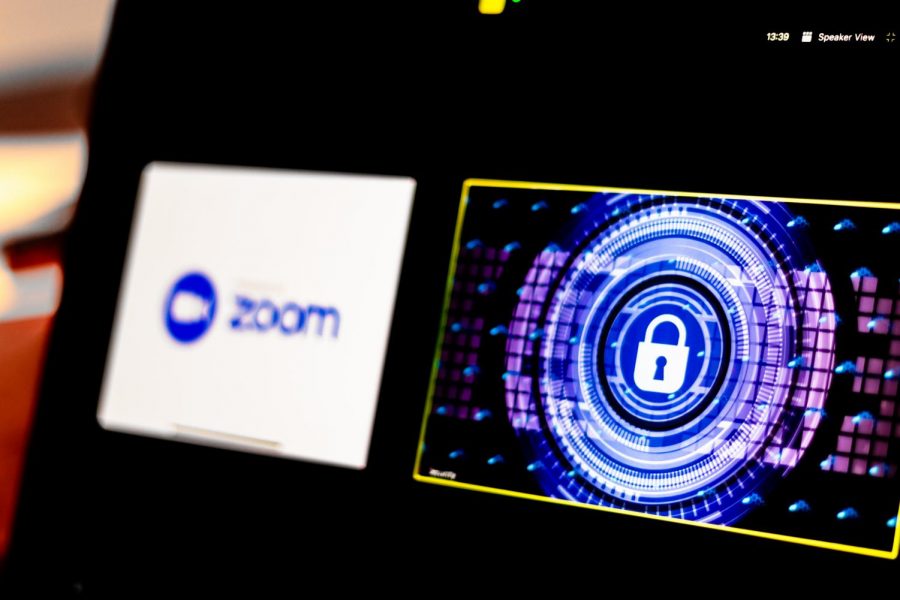Zoom Raises Questions of Online Privacy, Security
Photo Illustration by Edan Zinn ’23.
May 8, 2020
As much of the world continues to stay at home during the pandemic, students here have been utilizing a variety of online learning resources to continue their education.
Zoom, a popular video conferencing platform, has seen an explosion in popularity with schools and offices during the health crisis.
While the service has its benefits when when face-to-face meetings aren’t possible, it also has its share of drawbacks, leading to a collection of lawsuits for security and technical issues, as reported by Business Insider.
On the technical side, Zoom has faced issues with both client-side and server-side connections. Experts say that experiencing lag due to poor connection is unavoidable. According to Zoom’s website, the service has also experienced issues with disconnections, faulty passwords, and address mismatches.
However, most of these issues can be resolved by anyone at home with relatively easy fixes like reconnecting and updating the Zoom user client.
User security has also been a pressing concern that has been raised with the implementation of Zoom in work and academic settings. According to their own privacy policy, Zoom collects “cloud recordings, chat/instant messages, files, whiteboards, and other information shared while using the service” among a collection of data that allows the host to request chat logs and access cloud recordings.
Another main concern is the encryption of Zoom meetings—or lack thereof. An article from Wired reported that “Zoom had falsely marketed one of its features as making meetings ‘end-to-end encrypted.’” This means that data would be private to only the people on the call, not allowing Zoom to collect it.
However, this was proven to be untrue, and the company recently released a client update with minor cosmetic shifts, including one that shows the encryption of the call. The company has also changed its labeling to “endpoint encryption” or just “encryption” in many places.
Whether there has actually been a major shift in the security of the service is yet to be determined, but according to an official Zoom release, it will “provide increased protection for meeting data and resistance against tampering. Hopefully this will be effective, as privacy becomes more important than ever.”
For non-sensitive information—and the majority of class discussions—this does not pose a serious concern. After all, Zoom users must agree to the Terms of Service before joining a meeting. However, this has the potential to become an issue when Zoom is used in the transfer of sensitive information, such as in business or medical meetings.
During a time when online sharing is vital to business and education, security is more important than ever. As Zoom is being relied on as a primary means of communication for many companies and schools, the video conferencing platform has little room for technical errors and faulty security.
























































